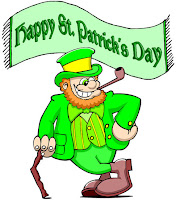A lot of the punctuation is the same for various languages, but a lot of the uses my be different. Even if you feel like you have a grasp on English punctuation, you might want to skim through this to make sure. I’m going to cover the main punctuation marks which serve a grammatical purpose.
Period . – This is used at the end of a sentence. It’s also used if you are abbreviating a word.
My name is Yvonne.
Mr. Crawford is my husband. (Please note in the UK, they do not put a period after the abbreviation of personal titles.)
Comma ,– This is used when you have 2 or more adjectives, when listing, separating a city and state, writing dates, breaking into a sentence with information that adds information, after an introductionary phrase, separating 2 independent clauses (with a conjunction like ‘and’), when you are addressing someone, or when writing dialog.
The big, brown cat is happy.
I have apples, oranges and grapes in my fruit salad.
I live in Charleston, South Carolina.
Today’s date is March 22, 2010.
Brian Crawford, my husband, is Canadian.
During my nap, I was startled by the doorbell.
My daughter slipped and fell, but she was okay.
Nicole, can you take out the trash?
Lucy said, “That’s my car, not yours!”
Question mark ? – This is used at the end of a sentence which is interrogative in nature.
Will you please bring me a glass of water?
Quotation marks “” – This is used when quoting an article/person or when writing dialog.
According to a book by Powers, life is “what you make it.”
Susan said, “Hello, how are you?”
Semi-colon ; – This is used to separate 2 related but completely independent clauses (without a conjunction like ‘and’). It’s used before a conjunctive adverb like however. Also, it is used in a list where commas are already there.
I went to the supermarket; I bought some milk.
I’m very poor; however, I just bought a new BMW. (make sure to put a comma after ‘however’)
I have visited many cities: London, England; Dublin, Ireland; and Paris, France.
Colon : – This is used to introduce a list. It should be used after a complete sentence only.
I have lots of children: Amelia, Lachlan and Callum.
Exclamation mark (exclamation point) ! – This is used at the end of a sentence and shows that the writer is excited or wants to add emphasis to a sentence.
I just won 100 dollars!
Apostrophe (single quotation marks) ‘ – This is used to show possession, make contractions, or writing a quotation within a quotation
This is Sally’s shirt that I am wearing.
Don’t hate me because I’m beautiful.
Peter said, “Donny said, ‘How about those Cowboys?'”
Hyphen – – This is used for adding a prefix, compound words and with numbers.
He did a re-creation of the last huge party (You can use it if it might be unclear if you did not use it.) (re-creation, not recreation.)
I want to opt-out of the party.
Five-sixths
Dash – – This is used when you want to make a interruption in your sentence.
I was really surprised – as you assumed when you saw my face – that my mother gave me a new car.
